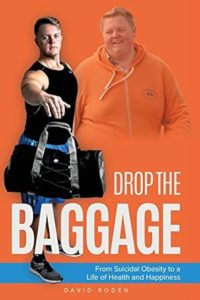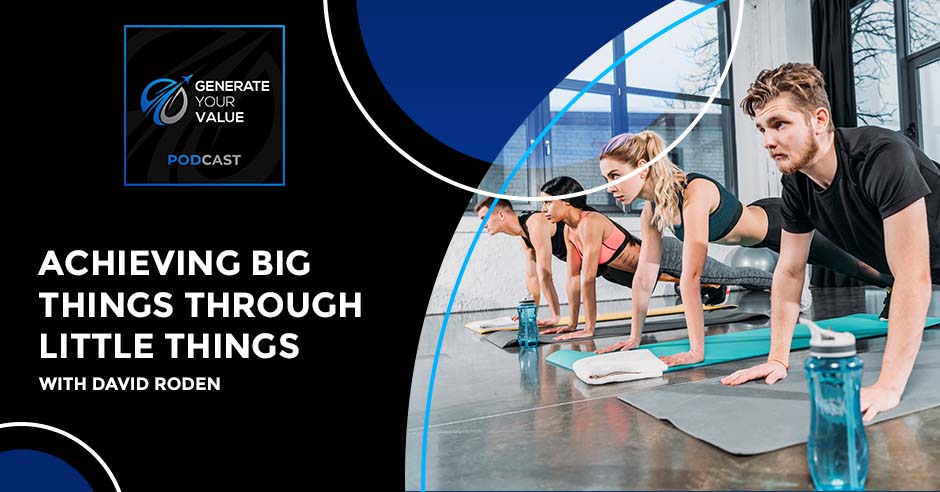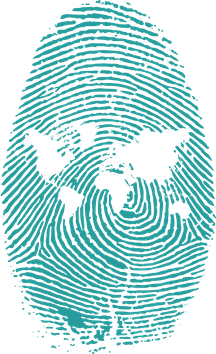Most of the time, we set goals so high that we often end up setting up ourselves for failure. Instead of attempting to accomplish overwhelming tasks, perhaps it is far more effective to focus on the little things and let them stack up. This is the roadmap followed by David Roden in his weight loss journey, allowing him to get rid of his 400-pound body. Joining Andy McDowell, he shares how refusing to give into the self-limiting diet culture and setting realistic goals allowed him to overcome his suicidal thoughts and achieve actual transformation. David also explains why we should not let emotions rule over our heads when it comes to food and how to manage ego when assuming a leadership role.
—
Listen to the podcast here
Achieving Big Things Through Little Things With David Roden
Welcome to Generate Your Value. I can’t thank you enough for spending that valuable resource in your life called time to spend it when myself and my guest. We’re going to spend some time on self-leadership. As you know, self-leadership is a big part of my business, what I do, and what I help people with. Self-leadership encompasses a lot of different parts of your life. We’re going to concentrate on one of those parts and that’s your health. My guest is Mr. David Roden who comes to us from the Upper Midwest.
David is in the fitness business, but he’s had an incredible life story about how he got into it, which is what I wanted him to draw out and talk to us about. I’m going to ping him with a few questions about self-leadership with his journey and so forth in hopes that his answers might help you in your journey particularly if you struggle with weight. I struggle with weight. I might be learning something as well in this journey of our episode.

From suicidal obesity to life of health and happiness, David has transformed his life from weighing over 400 pounds by the time he was eighteen years old. He had pre-diabetes and super high blood pressure. However, in the last ten years, he’s been down around 200 pounds in body fat. He’s reversed his high blood pressure and pre-diabetes. He’s a published author who wrote a book called Drop The Baggage: From Suicidal Obesity To A Life Of Health And Happiness. He’s competed in two bodybuilding competitions and has helped hundreds of people lose weight.
When I say lose weight, I’m not talking about 10 or 20 pounds. I’m talking about over 100 pounds of weight. He’s created and produced a documentary called The Anti Diet Diet Club, which in the documentary talks about debunking the diet and learning the truth behind extreme weight loss. David, welcome to the show. I can’t thank you enough for taking that valuable resource time of years to come in and share your story with us.
Thank you, Andy. I appreciate you asking me to be on the show. I’m looking forward to it.
As I always do, I like the audience to get to know you a little bit better and your life story. Pick a time in your timeline that you want to start at and give us the Reader’s Digest version of how you got to be where you are now.
I’m 32. I started my transformation when I was 22. I’ve been down around 200 pounds of body fat for one decade. We’ll pull it back one step. I weighed 400 pounds by the time I was eighteen years old. The thing that people always ask is, “How? Do you have a medical condition? What got you there?” Some of the backstories of where I’m at make things super interesting because what’s wild is my dad is a cardiologist. He’s a heart doctor. My mom was a nurse.
I grew up in a very strong level-headed loving family. I never had any problems. Honestly, the biggest thing I always joke about is I had the most sunshine of rainbows upbringing you could ask for. To be honest, all the resources and love from family household and everything. By the time, I was eighteen years old, I was 400 pounds pre-diabetic, hypertensive, and felt trapped in my 400-pound body. I almost ended my life twice.
The crazy part is no one knew. Everyone knew me as the funny fat kid who always had friends over. My parents didn’t know., No one knew. It wasn’t even to the point where I wrote the manuscript for my book and I had my dad read it when I went into my suicidal thoughts, depression, and feeling trapped at that size. He broke in front of me. He felt like a failure as a father.
I told him, “There was nothing you could have done. It is what it is. We all make mistakes. Everything is good now. I’m down 200 pounds. Everything is fine.” To be honest, I’m grateful for my 400-pound life because it allows me to do this. There are a lot of people in this position that have this same struggle. I get to come from an empathetic understanding but also a challenging perspective because I lived it. I felt as trapped as every one feels, but I understand what it takes to lose hundreds of pounds and transform their lives.
How I got there was simple. My dad worked crazy hours. My mom loved me to death. Her way of showing love was to always say yes. You’re lacking a masculine father figure that tells you no and you have a mom who loves you so much. She always says yes to what every 8 to 18-year-old kid wants, food and video games. I ate a ridiculous amount of food. I played a lot of video games and sure enough, I was 300 pounds by the time I was 13 or 14.
I was 400 pounds by the time I was 18. The big thing is you get to that size and you feel trapped. You have this bad relationship with food. You obsess over food. You use food to cope with stress. You have all these emotional issues tied to food, and you get caught in the loop. That’s what got me there because when people are thinking about losing 10, 20, or 30 pounds, there’s a little bit of a different mindset compared to losing hundreds.
You look at losing 100-plus and you’re like, “There’s no way.” I understand you can lose 10, 20, or 30, but 100, 150 or 200 pounds? No. That’s too far gone. I had the same belief. I thought at eighteen years old that this was going to be my life and I hated it so much that I almost ended my life because of it. Thank God, I didn’t. That’s understanding the depths of where your mind can get to and how off-place you can be. Honestly, I wouldn’t change it for the world. Depending on how you want to do it, we can transition straight into how I started making the shift. What would you like to go into from there?
You have gone on a weight journey in your early 20s. For me, it was a self-esteem journey. It didn’t relate to a lot of eating. It was probably the opposite of that, but it caused you some issues in your life moving forward. I brought my self-esteem issues into my first marriage. That was the baggage I brought in and was my contribution to the downfall of the marriage. Not being able to stand up for myself. Not taking care of things I need to take care of, all from a self-worth perspective.
Even though your parents had careers that don’t make sense for what happened, I think it speaks to the emotional side of life, not the mind and the brain. Your mother is a nurse. Dad is a cardiologist. They’re in careers using their mind to help people with the issue, but when it comes to the emotional side of themselves within the family, it is the exact opposite. Mom couldn’t say no. Dad was never there. He didn’t have an input because he was never there. You’re left at your own devices.
My dad was in corporate sales fairly high up. He was traveling a lot away from home. From the father’s side, I was in the same boat you were. I’m only estimating here, but my mom had the ability to say no and maybe that’s why the self-esteem issue didn’t express itself from a white perspective. I had a great group of friends. I was always out with sports with them doing things and so forth. It wasn’t sitting at home and watching video games like you were. Maybe that was my saving grace from a weight perspective, but it caused more issues for me in relationships than it did from a weight perspective. My weight issues didn’t come about until my divorce. That was stress eating.
I could completely understand how you might feel as being trapped. I felt trapped too, but it was not from a body weight health issue. It was from an emotional trap, “How do I get myself out of here?” It took a divorce with kids as my big wake-up. I have two parents who stayed married for 61 years until my mom passed away. That was my model. Here I am at the end of a failed marriage going, “What the heck? This is not the picture I had for myself, given I had this model to work from.”
It was a big wake-up call for me to say, “This is not the life that I want for myself.” I have to be introspective and take care to understand how I got myself to this place and what I need to do to change it. Was it the suicidal moments for you to change or that click that switch going, “I’m going to take ownership of my life and change things for myself?” When was that moment for you?
Honestly, it’s wild how that works. The way I conveyed it was “No.” In my senior year of high school, I had two moments of extreme suicidal thoughts that were like, “I need to end it. I’m done with this. I’m done with the pain. It’s frustrating.” I didn’t I got to that point and then went and lived through college for 2 to 3 years, floating right around 400 pounds. The shift came in my junior year. The way I explain it is people shift from 1 of 2 places, inspiration or desperation.
It’s a little bit of both. They both have their place. For some people, it’s a desperate moment when they have a heart attack. They have the marriage fall apart or whatever it may be. They hit the back to the wall and they’re like, “If I don’t change, I’m going to die. It’s over.” That’s one side. The flip side of the coin is inspiration too. Honestly, desperation never got me there. It was an inspiration.
My inspiration came about my junior year of college when I decided that med school wasn’t for me. I was pre-med in college. I was in my junior year and I didn’t like the general lifestyle of medicine and where it was going how many hours you’re working, the lack of control over your schedule, and all this stuff. I saw the most extreme case. Cardiology is the most unbalanced for doctors out there. Other professions have a little bit more balance, but there’s none in cardiology because you’re saving lives with your heart attacks constantly.
There are probably a lot of hero complexes in it.
My dad was no different. He loved what he did. That’s why he did it, but you can lose yourself in it. In my junior college, I decided med school wasn’t for me. I got pitched on a network marketing company. It was the start of my transformation. A network marketing company is a network marketing company. It is what it is. What happened was the people I surrounded myself with are some of my dear friends today. A lot of those guys were big into personal growth, reading books, and taking 100% accountability.
Here’s me at 400 pounds, and they had a weight loss product and stuff like that. I started on it. The biggest shift came from the book The Compound Effect by Darren Hardy. It’s simple, but it profoundly changes my perspective on weight loss. The quality of your life is not whether you go to college or not go to college. Do you get married or do you not get married? Do you have kids or do not have kids?
That’s not where the quality of your life comes from. The quality of your life comes from these daily almost insignificant habits and decisions that compound over 10, 20, or 30 years into a whole different life. Do you tell yourself daily, “I love the man in the mirror?” or “I hate the man in the mirror?” Do you go for a walk and average 10,000 steps per day walking or do you live a very sedentary lifestyle? You sit for a day, and nothing happens. You sit for a week and nothing happens. You sit for a year, there are some issues. You sit for a decade and you die.
The quality of your life comes from daily and almost insignificant habits and decisions that have grown over many years. Click To TweetThat’s the same thing and the same mentality when it came to fat loss, which was everyone thinks about the outcome from a business perspective, “I want to build this company.” For example, this documentary I’m coming out with extreme weight loss, “I need to lose 200 pounds.” That idea seems astronomically impossible if you don’t try. That’s what it comes out to. You do a couple of steps. You do a couple of things for a couple of days. You lose a couple of pounds. You’re like, “What do I do? I have 170 to go. F it, I’m going back to the way I used to be.”
That’s what happens. The biggest mental shift was like, “The only way you lose 200 pounds is if you lose 1 to 2 pounds a week for 100 to 200 weeks.” “I can wrap my head around that.” I was 408 pounds at the time and I said, “Next Sunday before 6:00,” I hit it. “Next Sunday at 4:04,” I hit it. “Next Sunday at 4:02,” I hit it. I didn’t care about losing 50 or 100. I was fixated on 1 to 2 pounds a week.
Before I knew it, I was down 50. When I stepped on the scale down 50 pounds, I was in my late junior or early senior year of college. I remember standing on a scale, looking at myself in the mirror, and going, “David, you’re changing everything you don’t like about yourself.” Anything you control, I’m changing it. I’m changing my entire life.”
Over the next 16 months or so, I dropped another 160, and then two excess skin removal surgeries and the rest is history. The biggest mental shift for me was not desperation. It was an inspiration. It was being inspired by a subtle mental shift that compounded over the years and now we’re here. That’s what people have a hard time understanding. Desperation works but inspiration is great too.
That’s why I use the example of building a house as an analogy in my coaching about what you’re talking about here. The foundation of your life is, as you said, those small things like mindset, habits, beliefs, and so forth. It is the foundation on which everything else is going to sit upon. When you’re looking at 400 pounds, you’re looking at that elephant and asking, “How am I going to eat the elephant?” Losing a pound or two every week for two years or so is eating an elephant slowly one bite at a time. How do you eat that slice of pizza? You eat it one bite at a time. You don’t shove the whole pizza slice in your mouth. They get overwhelmed with the picture.
That’s what happened with so many people. They try to take what they should realistically take 1 year to 18 months and they try to get it done in 3 to 6. The problem is the lifestyle they’re creating is not sustainable. They create this hyper-restrictive. They lose a ton of weight quickly, and then they can’t maintain it. They go back to old eating patterns and gain the weight back. It’s this constant diet culture, restrict-and-binge over and over again.
That is one of the major things I work with people on. Should you have pizza every day? No, probably not the best idea. Is it okay to have pizza once a week? Yes, have a slice of pizza once a week. It’s not a big deal. I helped a couple of clients. They’re a married couple. One has lost 160 and one has lost 175 now. It’s a male and female couple. Every Friday, they have pizza and they’ve lost a combined 200 pounds. You have to limit these things, but this idea of you can never have pizza again, good luck with that. I’m going to say what’s a life worth living without a slice of pizza? I don’t know. It’s a life worth living.
It’s not about depriving yourself but doing it in moderation.
We’re emotional beings. We have to talk about how people create associations with food. It’s comfort. It helps relieve stress. Those things are dangerous. Most of the time, it’s taught through family. That’s what my family did. Every time we celebrate, we eat food every time. Every time we get stressed, we eat food. Weight loss is simple and logical and it’s not a hard process. The problem is humans are emotional beings and you can’t tie out the emotion to food. What makes things tough is we’re emotional beings. If you don’t take that on, that’s where the problem happens.

I put on 50 pounds after divorce number one. As somebody who was constantly traveling around the world for business, a lot of my time, I was eating in restaurants or on the go in an airport or something where you’re food availability is limited.
They care about taste. They don’t care about calories.
I joined WeightWatchers. I lost 50 pounds over nine months, not in a month. I lost a pound or two every week. I got educated while I was added about what to do and what to look for. I was better educated when I sat at a restaurant somewhere in the world and looked at the menu being able at first glance to reduce it to about 10%. Twenty percent of the menu is what’s available to me to eat in a much healthier way and where to pick those out the type of thing. I got myself educated and did a lot better than adding another stressor to my life with another divorce. Moving forward, I was able to keep that weight off because I got educated at the same time to truly understand what certain foods and preparations do to the body.
The restaurant world is always interesting to me. I’m not here to demonize restaurants. What’s the goal of the restaurant? It’s to make the most delicious food to have you come back. They don’t care about calories, protein, or choosing foods that are the most “optimal health” for the person coming in. They want to make the food as delicious as possible so you come back.
You have to be careful when you eat cooked vegetables from restaurants. One time is not a big deal. You get cooked broccoli from a lot of these steakhouses. They’re dousing it in butter. You have no idea how much butter they’re putting into their cooked vegetables. Sometimes, you get duped on what you think you’re consuming.
Hidden calories.
It’s not that it’s bad. It’s just that you have to know that restaurants or not in your “best interest” for calories. You have to think, “For 90% of the menu, I have to be careful with stuff like this because it’s super calorie-dense.”
I was on a business trip for a week so I was eating in a restaurant every single day. I can have one night out of that week where I get to choose from the whole menu. The other four days, I have to restrict myself to the 10% or 20% of the menu that I know is going to be a lot healthier or the risk is reduced. You truly don’t know because you didn’t prepare it, but the risk exposure is greatly reduced.
That’s exactly how I do it. One to two meals a week, I indulge or whatever, but 90% of the time, it’s rhythmic habitual. I meal prep quite a bit personally. I’m a huge advocate for meal prep. In your situation, I couldn’t even imagine traveling as much as you do and somehow trying to stay to a plan because there are many indulgences around you every single day.
You don’t know what’s going to be presented to you. You are sitting in business class on a plane with a 10 to 12 or 13-hour flight where your captured audience is. Generally, 40 minutes or so after takeoff is the big meal. You’re getting handed a menu and there are 3 to 4 selections in terms of your main entree. To go down to the 10% or 20% that’s truly available to you is like, “You get one out of this. You have no choice. Which one is it out of 3 or 4?”
That’s the real deal. It’s always important when I deal with clients too in this sense of, “You have to take people where they’re at.” That’s a hard thing for people to understand. People get caught up in the diet world. I’ve had clients that are 500 or 600 pounds and they have a bad relationship with macaroni and cheese. They eat macaroni and cheese every single day.
The idea of not having it is astronomically outside of their ideal that it’s like if you were to take that macaroni and cheese out, they’re going to binge. I’m like, “How do I establish some macaroni and cheese into their daily lives without it getting out of hand?” I have a client of mine. He lost 80 pounds now, and he has macaroni and cheese almost every single day. Serving size, how much is he having? It’s not a lot, but it’s not zero.
That’s a hard one for people to understand. Take someone where they’re at and move them in a direction. A compound effect of small habits over an extended period of time leads to a major lifestyle change. It doesn’t have to be keto, paleo, carnivore, vegan or vegetarian. Ultimately, it’s about a sustainable lifestyle. If you like a “named brand diet,” they’re not inherently bad, but just like in aviation, you have to know what the actual scientific mechanisms are. You may use them in a different nuance way to get you there. That’s where people get caught up in. You need some type of control of restriction, but people’s perception of restriction is different.
Some people go, “I got low carb. I have no problem.” That’s fine. That’s a way to control calories. You don’t have to, but that’s a strategy. Some people say, “If you take my carbs, life is not worth living.” “We’re not going to restrict your carbs. We’re not going to cut them out. We got to find calories, protein, and all that stuff,” but take someone where they’re at, what they perceive as a sustainable lifestyle, and make it work. That’s a big mental shift that people in the diet zealotry world don’t understand. This all-or-none mentality jacks you up. The diet culture is like, “If I’m not being perfect, I might as well binge.” It’s not.
It’s all about the dopamine hit. If I’m having a conversation with a client, we’re talking about the love languages. The way I like to describe love languages is there are five of them. They all express love, but people put different values on the five. If we were to use currency as an example, acts of service may only be worth $5 to you, but words of affirmation are worth $100. It’s an expression of, “I value this more,” usually because you didn’t get it as a child, but not always. Mac and cheese may be the $100 bill versus a plate of broccoli that may only be worth $2 to you because you’re expressing that value on the dopamine hit, that comfort, or something that’s filling up for you as opposed to something healthier for the body.
I then have to ask a question about mindset from the perspective of what are you feeding. Whenever I have somebody who has bad behavior or things that are not serving their life, maybe being in a toxic relationship, I’m like, “What is that toxic relationship feeding? The only reason you have that in your life is because it’s feeding on something. What is it feeding in your life? Is that macaroni and cheese feeding, not your body but something emotional?” That might help people get to the crux of the issue for them.
The whole thing there is working on having those conversations with why are you doing what you’re doing? If you try to make someone shift everything overnight, a lot of people going to create this constant “Too much too quick.” It’s like, “We have 30 years to change your life. Let’s focus on what are the major hitting points. What’s going to move the needle?” It’s the 80/20 rule, 80% of your everything comes from 20% of your efforts. What is the actual 20% that affects 80%?
Once you get someone to know that, let’s get the 20% that affects 80% done first, then we can work on the nuance. It’s worth optimization and getting to all that stuff. Many people put 80% of their focus and the things that the 20% that doesn’t matter. They’re wondering why they’re struggling. They’re wondering why they think they’re somehow special. I try to look from two lenses. You have the traditional ones and zeros, Western medicine, metabolic world, and then you have the psychological, emotional, and spiritual Eastern medicine world. They both have effects.

It’s always fun because I argue on both sides of the coin on this in one of the different groups, depending on who I’m talking to. For example, one of the things that Western medicine has a hard time with about ones and zeros is the individual, the human. A hard thing for people to understand is no one can help someone change their life if the person is not willing to change their life.
No one can help someone change their life if the person is not willing to change. No doctor, drug, or surgery can fix them if they are not ready. Click To TweetNo doctor, drug, or surgery can fix somebody if the individual is not saying, “I’m ready to change.” There’s no way around it. Yes, some medications and drugs help with weight loss. Yes, there’s surgery that helps weight loss, and yet those don’t have 100%t success rate. Why? The individual and how they treat themselves, food and the psychology behind they think, and their belief systems and identities, you can’t take that out of it. On the flip side of the coin, I know people who are like, “It’s all about how you feel.” I will never forget. I had a conversation with a woman. It was all about feelings and I’m like, “Feelings matter. You can feel like a cookie is an apple. It’s not an apple.” In my head, it’s an apple.
You could be feeding your feelings more than your body.
You can’t take away vitamins, minerals, fiber, and all the scientific evidence of how the body works. It doesn’t mean that feelings don’t matter and how you treat yourself and food. No one is denying that but let’s come together here. Let’s take a full quantitative holistic approach. Look at the psychology, the brain, the thought process, the spirituality of food and yourself, and then also the ones and zeros, calories, protein, micronutrients, macronutrients, hormones, and all this stuff.
They both matter, but you get both polarities even there. It’s fun. That’s why I think I’m blessed to have such consistent results with clients. I can look at two lenses like, “What is their issue? Is it a nutritional education issue or is it an emotional psychological issue?” They’re not the same thing. People can be overweight for considerably different reasons. The fundamentals are the same. You’re eating and sitting too much. Why are you eating too much and sitting too much?
That’s why I love the word why. It is such a powerful word in people’s lives, as well as in business. I harp on the word why all the time. It’s peeling the onion back as to why you get such engagement from people when you can answer the question of why. In a lot of ways, they want you to answer the question why because that’s where you get the connection from.
My argument is always, “I don’t care what you think. I care why you think what you say. What brought you to that conclusion?” Most of the time, people don’t even have that. They don’t even know, “Carbs are bad.” “Why? What brought you to that conclusion?” “My mom told me how carbs spike your insulin. Insulin makes you fat.” “Based upon that logic, that could be true. Is it true?” I can go to the comparative human clinical trials where they track carbs, insulin levels, and fat loss, and it doesn’t matter. I’m sorry. It’s not true. I can see how you got there based on that. It’s just not backed by science.
It’s the rhetoric of “You’re wrong.” As soon as you go at them, you don’t have to ask them why to break down. You can draw from the depths of where they’re getting the information from. Can you influence someone to make a shift? When you say they’re wrong, you’re not going to help. That’s the social media world right there. Your ego takes over.
You can almost practically guarantee you’re going to get that response if you’re not talking about the why because you’re not going to get to buy in. When I work with an executive, she says, “I’m not getting an engagement out of my team.” That’s almost the first thing I go to. Do you talk about the why at all? Do you talk about why you’re doing this particular business strategy, why you’ve developed this policy inside the company, or why we’re going to build a profit-sharing plan in this way?
If you don’t explain why, it’s very difficult to get some of them to buy-in to what you’re doing. It’s through the why that you get the engagement that you’re looking for. Sometimes people sit in their power and authority too much. It’s like, “I shouldn’t have to explain why because what I say goes.” What you say goes, but you’re not going to get engagement from the team because you didn’t show them the wh. In doing that, you’re not showing that you care about them.
I always say it too in this lens, which is like, “You’re under the assumption that everyone sees everything the way you do.” That’s something I struggle with because being the science guy in my background, sometimes I make presumptions that when I say something, I’m talking about C and D. I’m assuming, they know A and B. They may not.
If you’re talking about C and D, and making the assumption they know A and B to get to C and D, they don’t get what you’re doing. If you’re not able to talk about the why and make sure they connect all the dots, they get lost in the process, which is your fault as a leader. That lies on you. I’ve heard this too, which I love. If you have a course and someone who buys your course is not getting the outcome that you are portraying, you missed a variable of education that they needed to get to where you need to go, and that’s your fault.
If someone doesn’t get the outcome of whatever you’re selling, weight loss, this and this, or whatever may be, you’re missing something that they needed and that’s on you. As a leader, if you’re trying to get this outcome and it’s not creating the outcome, you’re missing something, “Do I need to go depth into here? What am I missing?”The leader has to take 100% responsibility always. It’s like, “What did I miss? What do I need to know?”
That’s a big part of the reason why at the end of a yearly performance review with a team member of mine, I would ask the question, “What can I do better?” I’m trying to flush out those things like, “Where’s my blind spot? What am I missing here that can bring out even more of my team members in terms of being productive or getting the results we’re looking for or whatever it can be?” If it happens to you as a leader, you have blind spots. Are you looking for those blind spots? Not every human being is built exactly the same.
I do that all the time. The people I respect who have consistent results, I ask them all the time, “What am I missing? Am I missing something?” I’m very confident in the information I know, but there are plenty of things I don’t. What am I missing? That is super important from a leadership perspective. You should always have that 3, 4, or 5 group of people that has credibility. It’s super important.
You can’t choose random people. They have to have results, but they can look at lenses that you may not see. it’s super important that you constantly ask yourself, “What am I missing? Could I be missing something?” That’s where ego gets in the way. That’s where you get caught in corners. That’s where you lose big.
When ego gets in the way, you will get caught in corners and start to lose big. Click To TweetWhat would you say are the 2 or 3 critical success factors for somebody who needs to lose a lot of weight? What are those foundational things, regardless if they lean towards Western, Eastern, or whatever it may be, if you don’t get these 2 or 3 things from your client and your coaching program and so forth, they’re not going to be successful. We’re going to make sure these 2 or 3 things are in place as a minimum.
My number one is to stop hyper-fixing on diet and look at your life. You’re making a life change. You’re not doing a diet. You’re not doing a workout routine. Those are modalities of the how. There are a lot of modalities of how that can get you where you need to go. There are some hard sciences, especially when it comes to extreme weight. There are a lot of reasons why you’re in the position you’re in. You have to take those on. Is it the Law of Association where you’re surrounding yourself with people who binge eat all the time and don’t care about their quality of health, and you get caught up in the association of that? You happen to habitually over time make those decisions.
You may have to look into that. Is it a limiting belief, “My whole family is fat so I’m going to be fat for the rest of my life? Is it something like that? Is it a lack of education?” You have to look at it from, “I’m changing my life perspective,” not like, “I’m doing it. What’s the diet? What’s the fitness routine? Is it HIIT training? I heard it’s CrossFit. If I do CrossFit, everything is sunshine and rainbows.” No. It’s the farthest from the case.
The number one mental shift and absolute pillar is making someone understand that there’s a life issue and you have to look at your life as a whole, figure out where are the missing pieces, and take a holistic look at everything in your life. Is it a career path? Are you on a career path where there’s so much stress that you can’t handle it? There are many things we can talk about. You have to be honest with looking at your entire life and seeing what brought you here, and being honest about that.
From a mental perspective to be successful with that first item, you have to be able to say to yourself and believe in it, “I own my life. I’m the only one responsible for it, the only one that can do the work, do the actions, change the behaviors, and so forth to create change in my life. I’m going to do that intentionally.” Another one of my favorite words is intentionally, “I’m going to be intentional about changing my life. It’s maybe a rocky road and it may have good days and bad days and so forth, but the reality is I’m taking the long big picture of this and I’m going to change my life.”
That’s one of the things that Western medicine has a hard time understanding. They lean towards victimization where it’s always their hormones or, “I got bad genes.” 1) It’s not true. 2) How does that help you? How does that serve you? You don’t like where you’re at. I like the Jordan Peterson statement when he’s like, “One of the most disingenuous things you can tell somebody who hates where they’re at is that they’re okay where they’re at. How is that loving, helpful, and supportive? You’re telling somebody who hates where they’re at that they are okay where they are?”
That’s the most disingenuous thing you could do. One of the most empathetic things you can tell somebody is, “If you hate where you’re at, I believe in you. You can change. We can do this.” That’s the most empathetic thing you could do. The two other main ones are honestly the simplicity. 1) It’s calories. Everyone wants to talk about hormones and all this stuff. While those things have an influence, a calorie deficit is the only way you burn body fat.
There’s only one mechanism which is caloric deficiency. We can talk about what influences burning more calories, how many calories you’re consuming with whole foods and fiber, and which foods absorb faster and slower which affects the total calories being consumed and burned. All of that stuff can be talked about, but there’s no question. 1) You have to be at a calorie deficit to burn body fat. 2) Prioritize protein. That one is an unequivocal fact.

There is a hierarchy of importance when it comes to calories and the number one most important category is protein like eating more lean proteins. If you want to go vegan or vegetarian, it’s fine. You just have to work a little harder to focus on protein, but it’s about protein. Consuming protein helps with hunger, the feeling of fullness, the thermogenic effect of food, and putting on muscle which helps your metabolism. There are many benefits in prioritizing the focus of protein within calories. Those are two main hitters when it comes from a nutritional lens.
One last one is finding a fitness routine you enjoy. It has to be enjoyable. Ideally strength training, like having some type of strength training routine. You’re telling me that people in the bush of South America are lifting weights. No. They’re living a life where they’re moving their body and they live to 100. They’re living on a farm and doing some physical activity. You have to find it. You can’t sit all day. If it’s a step goal, great. If it’s a hip training workout with friends, great. If it’s working out in yourself, great. It does not matter. It’s finding a fitness routine where you move your body more consistently. That’s why I say, “Do it for enjoyment.” If it’s playing pick-up basketball, that’s great. Whatever fitness routine that’s going to bring the most joy to you, do that.
You got to get your body moving, and that’s my biggest challenge. I complained about all the travel I did but my body was moving. Going to meetings, moving around the city that I was in, moving around the airports, or whatever, I was moving. Whereas now in the coaching world, I am right at this very moment sitting in front of my computer having conversations sitting on my butt with my clients. I have to force the issue more than I used to in the past with the movement. That’s part of the reason why I got two puppy dogs because I walk with them all the time.
That’s a great one. You got dogs, “I got to take a walk.” That gets you out of the house. I get 10,000 steps in before noon because, like you, I spend a lot of time behind a computer. If I don’t get my fitness in my steps in before noon, I won’t get it in the rest of the day. That’s where I set my pattern around getting the fitness out first and then if I’m relatively sedentary for the rest of the day, it is what it is. I already got it in. I hit my 10,000 steps. We’re good there. I did my workout. We’re good. Now, I’m behind a computer for the next six hours. That’s fine. I hit my fitness stuff. My nutrition and fitness side is done.
Unfortunately, our time is coming to a close. I could talk to you forever about this stuff. If people want to reach out to you to understand more about what we talked about, take them on as a client of yours, or anything of that nature, what’s the best way to reach out to you?
My easiest is Instagram with my DMs. That’s my favorite. All my social media is @Fit_DRock on Instagram, TikTok, and all that stuff. You can email me. It’s FitDRock@gmail.com. I like Instagram DM because I can send voice messages. That’s my go-to. I’m currently not taking on any clients right now. I’m maxed out. I have other things going on when it comes to this documentary and other stuff going on. I still answer questions. If someone hits me up and says, “I have something,” hit me up. I love this. I know what it feels like to feel trapped in a 400-pound body or an extremely overweight body. I like helping people. It’s not fun in a significant way. Any way I can help, that’s why I’m here.
As I forewarned you in the green room, we have one last question for you that I ask every guest on the show. What do the words Generate Your Value mean to you?
Generating your value to me means you are in control of the value you bring to this world. You’re a blank slate and your value is as much as you generate to the world. Own that. You can generate nothing to this world or you can generate more to this world that you know what to do with. It ultimately comes down to you as an individual and the value you bring. Be honest and consistent. Be, open-ended to criticism and growth. You can make a big impact, but that generation of values comes down to how you deal with it.
You are in control of the value you bring to this world. No one is entitled to like your blank slate. Click To TweetI get into this with personal branding conversations with my clients. It’s to put it in business terms, your commodity, in which case, you have a pretty generic brand or you’re going to build your brand, be something more than just a commodity in this world, generate your value, and have a very strong brand? You’re making an impact here, putting ripples out into the world or whatever to help change it in some way or impact people’s lives in a positive way.
You can tell the difference. That’s all we do.
I can’t thank you enough for coming on to the show and sharing your wisdom with the world. I know I got some things out of this, and also the audience. I hope you did get some golden nuggets from our conversation that you can use to integrate into your life at the very least hoping, fingers crossed, that if you’re not doing it now, take ownership of your life and develop that mindset to say, “Nobody else is going to do it for me. I’m in charge.” The best way to build the future is to create it. You create it by having that intentional mentality of saying, “I’m going to take ownership of my life. What kind of life do I want for myself?” What do you want?
You have to create it. Figure out what you want in life and then go out and create it for yourself. It may be that you’ve got to create game plans. The mindset that David talked about with us is to go make that happen for yourself. I can’t thank you enough for taking your valuable resource, audience, and time spent with David and me in our conversation. Subscribe on your major platform so you don’t miss an episode. With that being said, I hope you have a great day and week. We’ll see you in the next episode. Thank you for tuning in to the show.
Important Links
- Mr. David Roden – LinkedIn
- Drop The Baggage: From Suicidal Obesity To A Life Of Health And Happiness
- The Compound Effect
- Instagram – David Roden
- TikTok – David Roden
- FitDRock@gmail.com
About David Roden
 From suicidal obesity to a life of health and happiness, David Roden has tranformed his life from weighing over 400lbs by the time he was 18 years old. He had prediabetes and super high blood pressure. In the last 10 years he has been down around 200lbs in body fat. Reverse his high blood pressure and prediabetes. Published Author, “Drop the Baggage: From suicidal obesity to amlife of health and happiness”. Competed in 2 bodybuilding competitions. Has helped 100s of people lose over a hundred pounds. Created and produced a documentary called “The Anti Diet, Diet Club” Debunking the diet and learning the truth behind extreme weight loss.
From suicidal obesity to a life of health and happiness, David Roden has tranformed his life from weighing over 400lbs by the time he was 18 years old. He had prediabetes and super high blood pressure. In the last 10 years he has been down around 200lbs in body fat. Reverse his high blood pressure and prediabetes. Published Author, “Drop the Baggage: From suicidal obesity to amlife of health and happiness”. Competed in 2 bodybuilding competitions. Has helped 100s of people lose over a hundred pounds. Created and produced a documentary called “The Anti Diet, Diet Club” Debunking the diet and learning the truth behind extreme weight loss.







